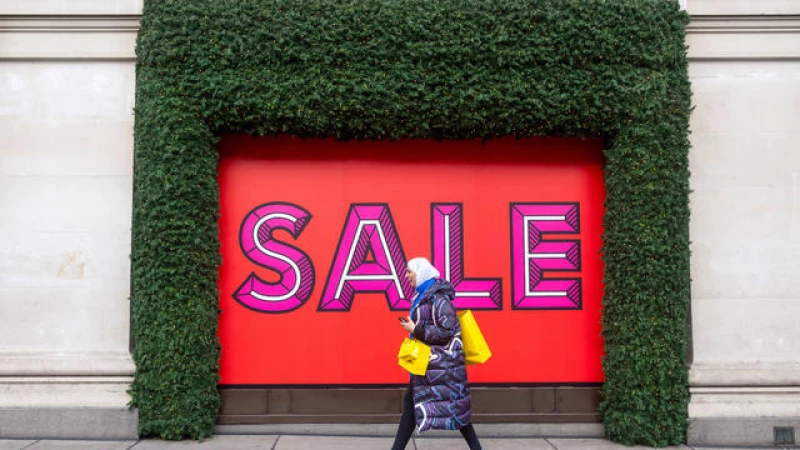Shoppers' Holiday Spending: A Closer Look
Shoppers weren't entirely tight-fisted during the holiday season, despite the ongoing pressure of inflation on household budgets.
U.S. retail sales grew 3.1% this holiday season, according to a Mastercard poll that tracks in-store and online retail sales. Spending on restaurants increased 7.8% from last year, while apparel and grocery-related purchases were up 2.4% and 2.1%, respectively, according to Mastercard.
Robust consumer spending bodes well for the economy's present and future, according to Goldman Sachs.
Consumers proved more willing to shell out on online purchases compared to in-store purchases, with online sales growing 6.3% this holiday season versus a 2.2% increase in sales at brick-and-mortar stores, Mastercard's data shows.
But not all retailers profited from shoppers' open wallets.
Pockets of Worry
Consumers spent 0.4% less on electronics and 2.0% less on jewelry compared to the 2022 holiday season, as price-conscious consumers cautiously embraced seasonal sales, Mastercard's data shows.
Increased Spending During the Holidays May Lead to More Debt
For many consumers, increased spending over the holidays may also bring more debt. About 2 in 3 Americans say their household expenses have risen over the last year, with only about 1 in 4 saying their income had increased in the same period, according to an October poll from The Associated Press-NORC Center for Public Affairs Research.
The strong holiday shopping turnout reinforces the likelihood the Fed will achieve its goal of so-called soft landing, some analysts say. Even so, some forecasters predict that consumer spending could peter out later next year.
"PNC expects a decline in consumer spending in the second half of 2024 as the U.S. economy enters into a mild recession," PNC analysts said in a research note. "High interest rates and modest job losses will cause households to turn more cautious. However, there's still about a 45% probability that the U.S. economy avoids recession and consumer spending growth slows, but does not outright decline."
The Mastercard SpendingPulse excluded automotive purchases.







